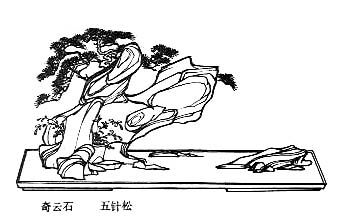Lun Yu 
 – The Analects of Confucius
– The Analects of Confucius
The Master discusses with his disciples and unveil his preoccupations with society. Tr. Legge (en), Lau (en) and Couvreur (fr).
Lunyu XVI. 9. (442)
Four classes of men in relation to knowledge.
Confucius said, "Those who are born with the possession of knowledge are the highest class of men. Those who learn, and so, readily, get possession of knowledge, are the next. Those who are dull and stupid, and yet compass the learning, are another class next to these. As to those who are dull and stupid and yet do not learn;– they are the lowest of the people."
Legge XVI.9.
Confucius said, 'Those who are born with knowledge are the highest. Next come those who attain knowledge through study. Next again come those who turn to study after having been vexed by difficulties. The common people, in so far as they make no effort to study even after having been vexed by difficulties, are the lowest.'
Lau [16:9]
Confucius dit : « Ceux dont la connaissance est innée sont des hommes [tout à fait] supérieurs. Puis viennent ceux qui acquièrent cette connaissance par l'étude ; puis ceux qui étudient, poussés par les épreuves. Enfin, ceux qui, même dans la détresse, n'étudient pas : c'est le peuple. »
Couvreur XVI.9.
(先天的に頭のいい者は「上の部」である)
学んでこれを知る者は次なり。
(学んで知識を得た者は、次のクラスである)
困(くる)しみてこれを学ぶはまたその次なり。
(ゆきづまってから、そこで初めて学ぶ気を起こす者は、さらにその次のランクである)

The Analects of Confucius – Lun Yu XVI. 9. (442) – Chinese off/on – Français/English
Alias the Lunyu, the Lun Yü, the Analects, les Entretiens du maître avec ses disciples.
The Book of Odes, The Analects, Great Learning, Doctrine of the Mean, Three-characters book, The Book of Changes, The Way and its Power, 300 Tang Poems, The Art of War, Thirty-Six Strategies
Welcome, help, notes, introduction, table.
Index – Contact – Top























